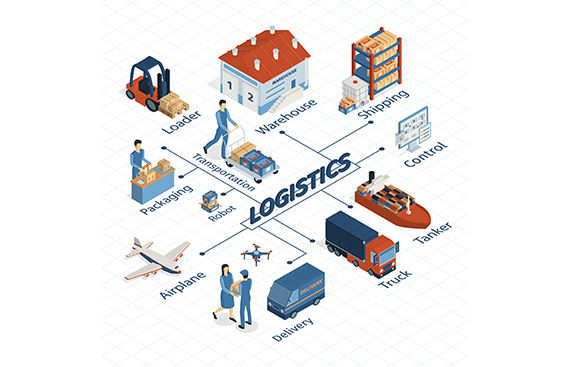Effective Risk Mitigation with the Supply Chain is Key to Hassle-free Logistics Operations

Holding an MBA in Logistics & Supply Chain Management, Dr. K. Chandramohan is a seasoned business professional boasting over 26 years of experience in diverse industry areas. Under his chairmanship, NTC has evolved into the NTC Group, a multinational conglomerate serving various crucial nation-building sectors. Siliconindia recently got a chance to interact with Dr. K. Chandramohan, wherein he shared his insights on the current logistics scenario in India and many other key aspects surrounding it. Below are excerpts from the exclusive interview
What are your thoughts on the current logistics scenario in India?
In the current landscape of the logistics industry in India, a substantial transformation is underway, propelled significantly by factors such as the surge in e-commerce, globalization, and a growing emphasis on sustainability. Notably, there is a noticeable uptrend in the export of steel, food grains, and automobile parts. The significance of last-mile delivery has surged considerably, as companies are committed to ensuring swift and efficient goods delivery to their clients. An impactful development in the project logistics sector is the widespread establishment of multimodal parks across the nation. This transformative shift is a positive indicator, positioning India for a more streamlined and responsive logistics network adept at meeting the evolving demands of the global economy.
Throw some light on a few modern day technologies that are redefining the logistics industry lately.
Businesses have recognized the significance of embracing an automated supply chain ecosystem to facilitate their growth, and this transformative wave is propelling the logistics industry towards a more cost-effective and customer-centric approach. Warehouse automation, fueled by AI and robotics, has transformed traditional warehouses into efficient, high-tech distribution centers capable of keeping pace with the rapid fulfillment requirements of today's consumer environment, ultimately enhancing the customer experience. Moreover, AI-driven sensors and Internet of Things (IoT) facilitate real-time tracking and monitoring of inventory, leading to improved inventory management and reduced losses. This has proven to be a game-changer for customers, offering them effective shipment tracking and advanced supply chain management solutions.
Briefly explain the impact of the ongoing global economic and geopolitical crisis on the logistics and supply chain operations.
The ongoing global economic crisis, coupled with the Israel-Hamas war and geopolitical tension between the US and China, had a profound impact on the logistics and supply chain sectors. The shutdown of manufacturing points, port closures, and cargo congestion delays have disrupted the supply chain, echoing across the global economy and leading to increased price levels. These disruptions have reverberated to an economic slowdown across Europe. Consequently, this has intensified inflationary forces and generated obstacles for the economy to recover after the pandemic. Our expertise in overseeing cross-border logistics and guaranteeing the secure and punctual delivery of goods has positioned us as the favored choice for businesses looking to broaden their global footprint.
Suggest a few effective risk management strategies for logistics companies to stay operational in crisis situations.
As the supply chain serves as the backbone of any logistics operation, the initial step for any logistics business is to proactively implement necessary measures to mitigate risks within their supply chain. It's imperative to adopt sustainable practices in times of crisis, such as optimizing routes and modes of transportation to reduce fuel consumption and emissions. Utilizing renewable energy sources, employing fuel-efficient vehicles, and implementing waste reduction and recycling programs are vital. To ensure long-term measures, incorporate sustainability principles into logistics policies, procedures, and standards. The essential part is to focus on restoring operations and returning to normal capacity as swiftly as possible.
How can the government and policymakers further boost the logistics space to contribute towards our country’s economic growth?
Recognizing the pivotal role of the logistics industry in economic development, it is crucial for the government to actively collaborate with regulatory bodies in steering the Indian logistics sector. The National Logistics Policy implemented last year has proven to be a game changer. The policy has streamlined the movement of goods, lowered logistics costs, and increased competitiveness, contributing to an improved economy. Furthermore, efforts to facilitate the development of logistics parks by promoting private investment and establishing a network aligned with PM Gati Shakti have yielded positive results, enhancing visibility, efficiency, and connectivity. Initiatives such as the India-Middle East-Europe Corridor and the India-Russia Maritime Route open up new avenues for trade and significantly contribute to the vision of India becoming a manufacturing hub and transitioning into an export-driven economy.





